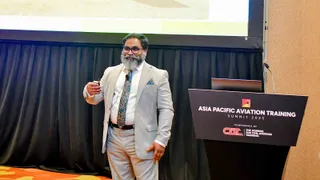The Two Sides To The VA’s Proposed APRN Policy
Contact Our Team
For more information about how Halldale can add value to your marketing and promotional campaigns or to discuss event exhibitor and sponsorship opportunities, contact our team to find out more
The Americas -
holly.foster@halldale.com
Rest of World -
jeremy@halldale.com
The Department of Veterans Affairs (VA) is proposing to amend its medical regulations to permit full practice authority to all VA advanced practice registered nurses (APRNs) when they are acting within the scope of their VA employment. The VA says this action would increase veterans' access to VA healthcare by expanding the pool of qualified healthcare professionals who are authorized to provide primary and other related healthcare services to without the clinical supervision of physicians.
The proposed rulemaking would subdivide APRN's into four categories – certified nurse practitioner, clinical nurse specialist, certified nurse-midwife and certified registered nurse anesthetist. The VA says this rule would allow it to use its healthcare resources more effectively, while maintaining the patient-centered, safe, high-quality health care that veterans receive from VA.
But the American Society of Anesthesiologists (ASA) strongly opposes the part of the policy that deals with anesthesia, saying the proposed policy would lower the standard of care in VA medical facilities and jeopardize Veterans’ lives by removing physician anesthesiologists from the operating room. More specifically, it says the proposed policy would replace physician anesthesiologists with nurses, instead of the traditional model of care where physician anesthesiologists and nurse anesthetists work together as a team to provide high-quality and safe anesthesia.
The ASA says the policy change is based on a shortage of some types of physicians in the VA – but there is no shortage of physician anesthesiologists, and the change is not needed to improve access to anesthesia care in surgery. It also points out the VA’s own Quality Enhancement Research Initiative (QUERI) could not discern “whether more complex surgeries can be safely managed by CRNAs” – and there are no independent studies that show nurses can ensure the same outcomes as physician anesthesiologists.
“Surgery and anesthesia are inherently dangerous requiring physician involvement, particularly for Veterans who are sicker and often have multiple medical conditions that put them at greater risk for complications,” according to Daniel J. Cole, M.D., president of the ASA.
That group says, since the proposed policy would have all advanced practice registered nurses (APRNs) – including nurse anesthetists – practice without the collaboration, supervision or other involvement of a physician, “individual VA hospitals will be expected to abandon the proven model of team-based anesthesia care that ensures patients have access to a physician anesthesiologist if an emergency or complication occurs. Under the new policy, Veterans will not have access to physician anesthesiologists.”
American Nurses Association (ANA), the American Association of Colleges of Nursing (AACN), along with the Air Force Sergeants Association (AFSA) and the Military Officers Association of America (MOAA) all staunchly support the new policy. They point out the Department of Defense (DoD) already provides active duty personnel direct access to APRNs – and that nurse anesthetists have been the main providers of anesthesia care on the front lines of every U.S. military conflict since World War I.
That group says since the proposed policy would have all advanced practice registered nurses (APRNs), including nurse anesthetists, practice without the collaboration, supervision or other involvement of a physician , “individual VA hospitals will be expected to abandon the proven model of team-based anesthesia care that ensures patients have access to a physician anesthesiologist if an emergency or complication occurs. Under the new policy, Veterans will not have access to physician anesthesiologists.”
On the flip side, the American Association of Nurse Anesthetists (AANA), American Association of Nurse Practitioners (AANP),
"Throughout my career, I have been honored to care for this extraordinary population," said AANP President Cindy Cooke, DNP, FNP-C, FAANP, on behalf of the 222,000 nurse practitioners in the U.S. today. "Our veterans have given so much to our nation and deserve to have us stand with them. The proposed rule is zero risk. Zero delay. And a zero cost solution to ensure veterans have access to needed health care. We applaud the VA for taking this important action, which will immediately improve veterans' access to care. And we are doing everything we can to support its proposal."
The VA – as well as opponents and supporters of the proposed policy – all are urging stakeholders and the public at large to weigh in on this issue before the comment period ends on July 25. To date, more than 56,000 Americans have commented at www.safevacare.org.


